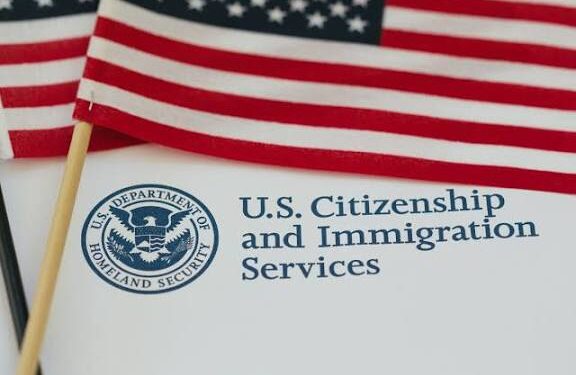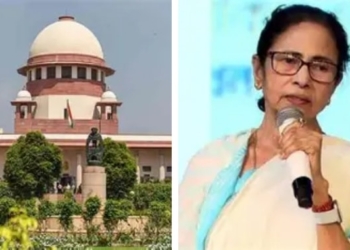In a significant move affecting thousands of Indian professionals and their families, the US Department of Homeland Security (DHS) has officially ended automatic extensions of Employment Authorization Documents (EADs) — the work permits that allow non-US citizens to stay employed legally.
The new rule, effective Thursday, October 30, will require all foreign workers to stop working if their EAD renewal is not approved before their current permit expires.
According to DHS, this change will allow for more frequent vetting and screening of foreign nationals applying for employment authorization.
“Aliens who file to renew their EAD on or after Oct. 30, 2025, will no longer receive an automatic extension of their EAD,” the department said in an official statement. “Ending automatic extensions results in more frequent vetting of aliens who apply for employment authorization to work in the United States.”
Previously, workers could continue their employment for up to 540 days while waiting for renewal approval. Under the new rule, this grace period no longer applies.
USCIS Urges Early Renewal Applications
The US Citizenship and Immigration Services (USCIS) has advised all applicants to file renewal requests up to 180 days before expiration to minimize disruption.
“The longer an applicant waits to file an EAD renewal, the more likely it is that they may experience a temporary lapse in their employment authorization,” the DHS statement noted.
However, given current USCIS processing times ranging from 3 to 12 months, many workers could still face forced breaks in employment despite early applications.
Indians Among the Most Affected
The rule is expected to disproportionately impact Indian nationals, who form a major part of the US foreign workforce and already face some of the world’s longest green card backlogs.
Groups most likely to be affected include:
-
H-1B visa holders waiting years for permanent residency
-
H-4 dependent spouses who rely on EADs to work
-
STEM students on Optional Practical Training (OPT)
-
Employment-based green card applicants with pending cases
“This rule represents a major shift in how employment authorization renewals are handled,” said Henry Lindpere, Senior Counsel for Immigration Law at Manifest Law. “The most significant impact will be seen among H-4 spouses, OPT students, and those awaiting green cards.”
No Grace Period Beyond Expiry
Until now, foreign professionals could keep working while waiting for EAD renewals to process. Starting Thursday, that protection ends.
“Almost everyone will lose work authorization if their renewal isn’t approved before the expiration date,” Lindpere added.
Immigration experts warn that even a one-day delay could cost skilled workers their jobs — and potentially their visa status.
DHS Defends the Move as a Security Measure
The DHS and USCIS have described the new rule as a national security measure, emphasizing “stronger vetting” for foreign nationals.
“Working in the United States is a privilege, not a right,” said Joseph Edlow, Director of USCIS. “USCIS is placing renewed emphasis on robust screening and vetting before extending work authorization.”
Officials cited a June 2025 incident in Colorado involving an asylum applicant whose automatically extended work permit led to a security review, as one reason for the policy tightening.
Exceptions to the Rule
The only exemptions to this new policy apply to:
-
Temporary Protected Status (TPS) holders
-
Extensions granted through federal law or Federal Register notices
EADs that were automatically extended before October 30, 2025, will not be affected.
Mounting Uncertainty for Indian Professionals
Indian nationals already face green card wait times stretching beyond 20 years, due to per-country limits. Many rely on EAD renewals to stay employed while awaiting permanent residency.
Immigration attorneys warn that this policy could lead to mass job losses, status violations, and financial hardship for Indian families settled in the US.
“This could trigger widespread unemployment among highly skilled Indian professionals,” said an immigration consultant based in New Jersey. “Even one day of processing delay could force them out of work.”
H-1B Crackdown Adds to Visa Pressures
The change follows a string of policy moves tightening immigration pathways. Earlier this year, the H-1B visa fee was raised to $100,000, and Florida Governor Ron DeSantis ordered state universities to prioritize hiring American citizens over foreign professionals.
The administration says the measures aim to protect American jobs and ensure only highly skilled foreign workers enter the US labor market.
For the hundreds of thousands of Indian professionals in tech, healthcare, and research sectors, however, the new DHS rule adds another layer of uncertainty to an already challenging visa landscape.





























